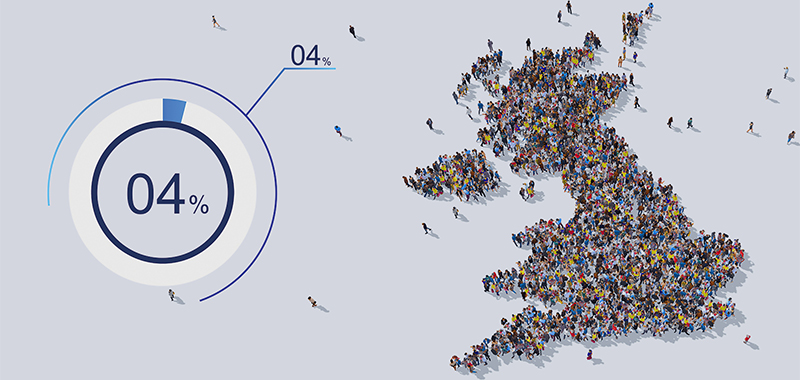
New study shows ‘conversion therapy’ ban lacks popular support
Newly released polling shows that only 4% of UK voters think banning ‘conversion therapy’ should be a policy priority for the Government.
The survey of over 2000 UK voters proves that the public wants politicians to focus on issues like healthcare and the economy. The results also show a lack of support among those more engaged in politics, with only 5% of Conservative party members saying a ban should be a top-five priority. Only 5% of Scottish voters felt the Scottish Government should prioritise the issue.
The polling was commissioned by The Christian Institute and carried out by professional research group Whitestone Insight.
A blow to LGBT activists
Vocal campaign groups have been pressing for a new law on ‘conversion therapy’. In every part of the UK, activists are working alongside politicians to introduce repressive bans on Christian practices they wrongly describe as abusive.
The results of the polling will be a blow to these vociferous campaigners who want the ordinary work of churches to be criminalised. They would see prayer, pastoral care and Christian parenting made illegal when it disagrees with LGBT ideology.
Some activists have used their own ‘research’ in deeply misleading ways. Polling privately run by leading campaign group, the Ozanne Foundation, vastly inflated its results by including those who ‘prayed alone’ within the numbers who had apparently ‘experienced conversion therapy’.
Its leader, Jayne Ozanne, told the press that even ‘gentle, non-coercive prayer’ should be covered by any new law. And the main campaign group, which is also chaired by Ozanne, claims that a ban must cover “private prayer” and “casual conversations” if it is to be effective. But does the public really support a repressive law like this?
Proper polling
The findings of the new professionally-designed, representative polling are undeniable. It is abundantly clear that ordinary voters in every part of the UK would prefer that politicians focused on real issues instead of “oppressive woke nonsense”. Let Us Pray’s Simon Calvert explained:
“This is a significant poll. It involves over two thousand voters, showing which policy areas the public think are important. Despite years of campaigning by activists, the public are not at all convinced of the need for an expansive conversion therapy ban.”
“The fact is that gay and trans people are already fully protected against verbal and physical abuse. There is no need for a new law.”
The reality of a conversion therapy ban
Last month, we explained how even the Lord’s Prayer could be made illegal under the conversion therapy law in Victoria, Australia. Updated official guidance there claims that prayers that “talk about a person’s … need to repent” or “ask for a person not to act on their attractions” can now be investigated as illegal actions. In direct opposition to the Bible’s teaching, Christians are told they must instead tell people they are “perfect as they are”.
The reality of the ban is that it leaves Christians open to investigation any time they seek to support someone struggling with same-sex attraction or their gender. Alongside this, the Victorian guidance explains that “not affirming someone’s gender identity” is illegal, as is a parent refusing to support their child’s request for puberty-blocking drugs.
In the UK, the reality is that very few people would support this sort of law. But as the polling shows, the vast majority haven’t bought into activists’ misleading hype either. The public simply isn’t interested in this sort of virtue-signalling policy.
Sex Matters responds to Stonewall’s ludicrous “conversion” claims
2025-05-14 07:17:58
